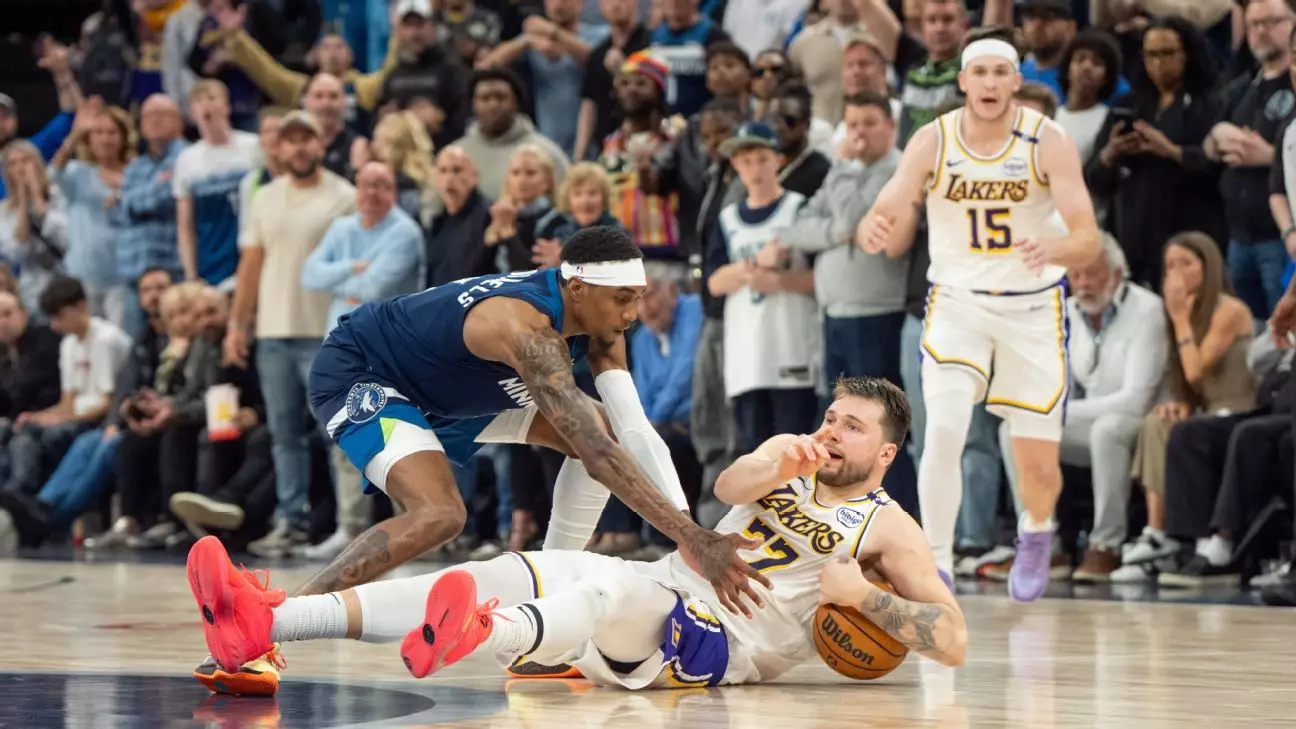The recent playoff clash between the Los Angeles Lakers and the Minnesota Timberwolves brought to light a glaring issue in officiating—a missed foul call that many fans and analysts have debated feverishly. With just 33 seconds left in a tightly contested Game 4, Luka Doncic of the Lakers was tripped by Jaden McDaniels, a foul that went uncalled and potentially altered the outcome of the game. The NBA, in its obligatory “Last Two Minute Report,” acknowledged this oversight, emphasizing the significance of seemingly minor moments in high-stakes matchups. This incident serves as a reminder of how crucial accurate officiating is during playoff games, where every possession, every point, and every decision carries weight.
The Ripple Effect of Mistakes
The ramifications of such officiating blunders extend beyond the immediate moment. In this instance, had the foul against Doncic been called, the Lakers would have had a chance to either tie the game or take the lead—an opportunity critical not just for the game’s outcome, but also for the psychological state of the team moving forward in the series. Instead, the momentum shifted. After the missed call, Minnesota capitalized, with Anthony Edwards subsequently sinking two free throws, giving the Timberwolves a late three-point cushion. The question looms: How many games hinge on a single call, and what does that mean for teams, players, and fans alike?
Fan Frustration and the Human Element
The emotional rollercoaster that fans experience during playoff games becomes even more turbulent when they witness such glaring errors. LeBron James and Austin Reaves voiced their frustrations post-game, and their sentiments echoed the sentiment of countless fans who felt the sting of missed opportunities. James remarked on the complexities of officiating, noting how the nuances of contact can lead to disagreements about what constitutes a foul. This hints at the broader struggle officials face—how can they ensure consistency when every game, every situation is unique?
The NBA’s decision to release reports documenting these officiating errors is appreciated but ultimately feels insufficient. While it provides accountability, it does little to correct the outcomes of the games affected. Fans and players are left to ponder the “what ifs” and “could have beens,” which can sour the experience of the playoffs.
The Need for Reform
This glaring differentiation between what is perceived as a foul versus what is officially called raises the question: Is the current framework of NBA officiating adequate? Some argue there needs to be better training for officials and perhaps an increase in technology usage during games to assist with calls. After all, in an era where technology shapes almost every aspect of sports, shouldn’t it also play a role in officiating?
Playoff games are meant to showcase the best of basketball—the tension, the skill, and the drama. But when officiating errors overshadow the action, it undermines the integrity of the competition. With the stakes as high as they are in pivotal playoff games, a call could mean the difference between a team advancing or going home. As we look ahead to the forthcoming games, the emphasis on getting it right is not just a call for improvement—it’s a necessity for preserving the spirit of the game.

